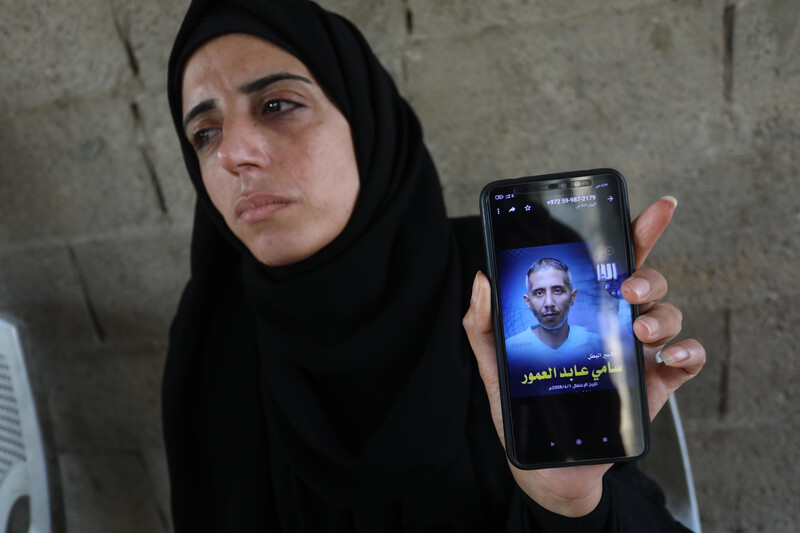Rights and Accountability 23 November 2021

Sami al-Amour’s fiancée mourns his death in Israeli custody in Deir al-Balah refugee camp in central Gaza on 18 November.
APA imagesThree Palestinian prisoners suspended grueling hunger strikes after reaching deals with Israeli prison authorities.
Kayed Fasfous, a 32-year-old father of a young girl, ended his hunger strike on Monday after 131 days of refusing food in protest of his administrative detention.
Israel agreed to release him on 12 December.He has been in very poor health in Barzilai hospital in Ashkelon, southern Israel.
He was displaying signs that may indicate blood clots or even sudden death, doctors said, according to the Palestinian Prisoners Club.
Even then, Israel’s highest court rejected multiple petitions to release him.
Fasfous is from the village of Dura, near the southern West Bank city of Hebron.
Ayad al-Harimi, 28, also suspended his hunger strike of 62 days on Monday after Israel agreed to release him in March 2022. Al-Harimi has been jailed since April. He was not taking any supplements during his strike and was experiencing dangerous deterioration.
He is from the occupied West Bank city of Bethlehem.
Palestinian prisoner Alaa al-Araj suspended his hunger strike last week after refusing food for 103 days.
A list of charges was brought against him in military court, and his administrative detention order, under which he was held without any charge, was subsequently canceled.
Hunger strikes
Two Palestinians are still refusing food in protest of being held without charge or trial.
Hisham Abu Hawash, a 39-year-old father of five also from Dura, has been refusing food for nearly 100 days.
He is being held at the Ramle prison clinic, dubbed the “slaughterhouse” by prisoners, due to its inadequacy as a medical facility.
He is constantly losing consciousness, he has sharp pains in his body and he has trouble sleeping, according to the prisoners group.
He’s been in Israeli detention since October 2020 without being charged or tried – on administrative detention orders that have been renewed twice and could be renewed indefinitely.
Luai al-Ashqar, 45, has been on hunger strike for more than 40 days. He is a father of eight from the town of Seida in the Tulkarm governorate.
He also refuses to take supplements or be examined by a doctor. He has lost 27 kilograms, is often dizzy and his eyesight is deteriorating, according to the prisoners club.Died in detention
Meanwhile, a Palestinian prisoner died on Thursday after 13 years in Israeli detention.
Sami Abed al-Amour died at the Soroka hospital in Beersheva, southern Israel.
Palestinian human rights groups and political parties accused Israel of medical neglect in the death of al-Amour. Israeli prison authorities spent 14 hours transferring him from Nafha prison in the Naqab region of southern Israel to the hospital, according to the Palestinian prisoners movement.
What was done to al-Amour was “nothing short of a real execution and further confirmation of the policy of medical negligence,” the national movement for prisoners said on Thursday.
Israel is “fully responsible” for the death of al-Amour, the movement said.
Al-Amour was from Deir al-Balah in the central Gaza Strip. He had six years left in his sentence.
He is the second Palestinian to die in Israeli detention this year.
Maher Dheeb Sasa, 45, died in Israeli detention on 20 January. He had been imprisoned by Israel since 2006 and reportedly had several health problems.
Hussein Masalmeh, another Palestinian, died shortly after being released from Israeli prisons in September.
Masalmeh had leukemia, and his health deteriorated throughout his last year of imprisonment. Palestinian prisoners said Israel failed to provide proper medical treatment to Masalmeh.




